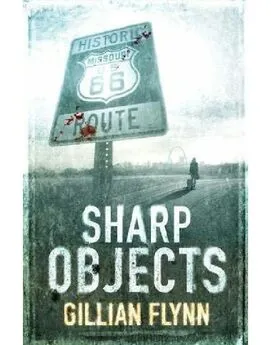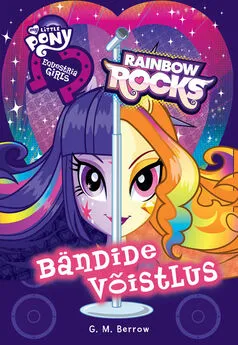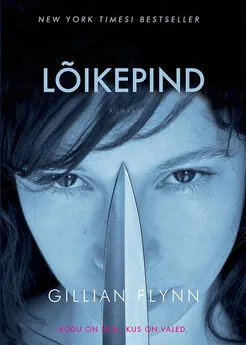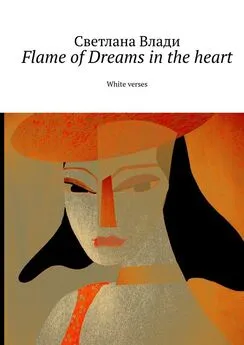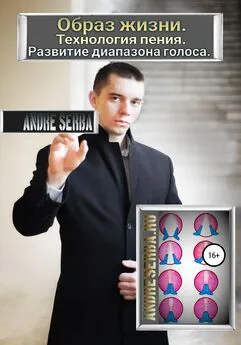Flynn, Gillian - Sharp_Objects
- Название:Sharp_Objects
- Автор:
- Жанр:
- Издательство:неизвестно
- Год:неизвестен
- ISBN:нет данных
- Рейтинг:
- Избранное:Добавить в избранное
-
Отзывы:
-
Ваша оценка:
Flynn, Gillian - Sharp_Objects краткое содержание
Sharp_Objects - читать онлайн бесплатно полную версию (весь текст целиком)
Интервал:
Закладка:
For a while I convinced myself that Adora’s distance was a defense constructed after Marian. But in truth, I think she’s always had more problems with children than she’d ever admit. I think, in fact, she hates them. There’s a jealousy, a resentfulness that I can feel even now, in my memory. At one point, she probably liked the idea of a daughter. When she was a girl, I bet she daydreamed of being a mother, of coddling, of licking her child like a milk-swelled cat. She has that voraciousness about children. She swoops in on them. Even I, in public, was a beloved child. Once her period of mourning for Marian was over, she’d parade me into town, smiling and teasing me, tickling me as she spoke with people on the sidewalks. When we got home, she’d trail off to her room like an unfinished sentence, and I would sit outside with my face pressed against her door and replay the day in my head, searching for clues to what I’d done to displease her.
I have one memory that catches in me like a nasty clump of blood. Marian was dead about two years, and my mother had a cluster of friends come over for afternoon drinks. One of them brought a baby. For hours, the child was cooed over, smothered with red-lipstick kisses, tidied up with tissues, then lipstick smacked again. I was supposed to be reading in my room, but I sat at the top of the stairs watching.
My mother finally was handed the baby, and she cuddled it ferociously. Oh, how wonderful it is to hold a baby again! Adora jiggled it on her knee, walked it around the rooms, whispered to it, and I looked down from above like a spiteful little god, the back of my hand placed against my face, imagining how it felt to be cheek to cheek with my mother.
When the ladies went into the kitchen to help tidy up the dishes, something changed. I remember my mother, alone in the living room, staring at the child almost lasciviously. She pressed her lips hard against the baby’s apple slice of a cheek. Then she opened her mouth just slightly, took a tiny bit of flesh between her teeth, and gave it a little bite.
The baby wailed. The blotch faded as Adora snuggled the child, and told the other women it was just being fussy. I ran to Marian’s room and got under the covers.
Back at Footh’s for a drink after my mother and the Nashes. I was boozing too much, but never to the point of drunkenness, I reasoned with myself. I needed just a nip. I’ve always been partial to the image of liquor as lubrication—a layer of protection from all the sharp thoughts in your head. The barkeep was a round-faced guy two classes behind me who I was pretty sure was named Barry but not sure enough to actually call him that. He muttered, “Welcome back,” as he filled my Big Mouth cup two-thirds full of bourbon, splashed some coke on top. “On the house,” he said to the napkin holder. “We don’t take money from pretty women here.” His neck shot red, and he suddenly pretended he had urgent business at the other end of the counter.
Itook Neeho Drive on the way back to the house. It was a street several of my friends had lived on, slicing through town and growing increasingly more posh as it neared Adora’s. I spotted Katie Lacey’s old home, a flimsy mansion her parents built when we were ten—after they’d smashed their old Victorian into shards.
A block ahead of me, a little girl on a golf cart decorated with flower stickers putt-putted along. She wore her hair in elaborate braids like a little Swiss maid on a cocoa box. Amma. She’d taken advantage of Adora’s visit to the Nashes to make an escape—girls traveling solo were an oddity in Wind Gap since Natalie’s killing.
Rather than continue home, she turned and headed east, which meant dirtbox houses and the pig farm. I turned the corner and followed her so slowly I almost stalled out.
The route offered a nice downhill slope for Amma, and the cart glided so fast her braids flew out behind her. In ten minutes, we were in the country. Tall yellow grasses and bored cows. Barns leaning like old men. I let the car idle for a few minutes to give Amma a good head start, then drove just far enough to keep her in sight. I trailed her past farmhouses and a roadside walnut stand that was manned by a boy who held his cigarette jaunty as a movie star. Soon the air smelled like shit and stale saliva and I knew where we were heading. Another ten minutes and the metal pig holds came into sight, long and glinty like rows of staples. The squeals made my ears sweat. Like screams from a rusty well pump. My nose flared involuntarily and my eyes started watering. You ever been near an animal-processing plant, you know what I mean. The smell isn’t like water or air; it’s a solid. Like you should be able to cut a hole in the stink to get some relief. You can’t.
Amma zipped through the gates of the plant. The guy at the booth just waved at her. I had a tougher time until I said the magic word: Adora.
“Right. Adora’s got a grown-up daughter. I remember,” said the old guy. His nametag said Jose. I tried to see if he was missing any fingers. Mexicans don’t get cushy box jobs unless they’re owed. That’s the way plants down here work: The Mexicans get the shittiest, most dangerous jobs, and the whites still complain.
Amma parked her cart next to a pickup and dusted herself off. Then, with a businesslike beeline, she walked straight past the slaughtering house, past the lines of pig holds, those wet pink snouts squirming between the air slats, and to a big metal barn of a building where the nursing happens. Most sows are repeatedly inseminated, brood after brood, till their bodies give way and they go to slaughter. But while they’re still useful, they’re made to nurse—strapped to their sides in a farrowing crate, legs apart, nipples exposed. Pigs are extremely smart, sociable creatures, and this forced assembly-line intimacy makes the nursing sows want to die. Which, as soon as they dry up, they do.
Even the idea of this practice I find repulsive. But the sight of it actually does something to you, makes you less human. Like watching a rape and saying nothing. I saw Amma at the far end of the barn, standing at the edge of one metal farrowing crate. A few men were pulling one pack of squealing piglets out of the stall, throwing another pack in. I moved to the far side of the barn so I could stand behind Amma without her seeing me. The pig lay nearly comatose on its side, its belly exposed between metal bars, red, bloody nipples pointing out like fingers. One of the men rubbed oil on the goriest one, then flicked it and giggled. They paid no attention to Amma, as if it were quite normal that she was there. She winked at one as they snapped another sow in a crate and drove off to get the next pack.
The piglets in the stall were swarming over the sow like ants on a glob of jelly. The nipples were fought over, bouncing in and out of mouths, jiggling tautly like rubber. The sow’s eyes rolled up into her head. Amma sat down cross-legged and gazed, fascinated. After five minutes she was in the same position, now smiling and squirming. I had to leave. I walked, first slowly, then broke into a scramble to my car. Door shut, radio blasting, warm bourbon stinging my throat, I drove away from the stink and sound. And that child.
Chapter Eight
Amma. All this time I’d had little real interest in her. Now I did. What I saw at the farm kept my throat clenched. My mother said she was the most popular girl in school, and I believed it. Jackie said she was the meanest, and I believed that, too. Living in the swirl of Adora’s bitterness had to make one a bit crooked. And what did Amma make of Marian, I wondered? How confusing to live in the shadow of a shadow. But Amma was a smart girl—she did her acting out away from home. Near Adora she was compliant, sweet, needy—just what she had to be, to get my mother’s love.
But that violent streak—the tantrum, the smacking of her friend, and now this ugliness. A penchant for doing and seeing nasty things. It suddenly reminded me of the stories about Ann and Natalie. Amma wasn’t like Marian, but maybe she was a little bit like them.
It was late afternoon, just before suppertime, and I decided to make a second pass at the Keenes. I needed a quote for my feature piece and if I couldn’t get it, Curry was going to pull me out. Leaving Wind Gap would cause me no pain personally, but I needed to prove I could handle myself, especially with my credibility faltering. A girl who slices herself open isn’t the first on the list for tough assignments.
I drove past the spot where Natalie’s body was discovered. What Amma deemed unworthy of stealing sat in a sad clump: three stumpy candles, long since blown out, along with cheap flowers still in their supermarket wrappers. A limp helium balloon in the shape of a heart bobbing listlessly.
In the driveway outside the Keene home, Natalie’s brother sat in the passenger seat of a red convertible talking with a blonde girl who almost matched his beauty. I parked behind them, saw them sneak quick looks, then pretend not to notice me. The girl began laughing animatedly, weaving her red-lacquered nails through the back of the boy’s dark hair. I gave them a quick, awkward nod, which I’m sure they didn’t see, and slipped past them to the front door.
Natalie’s mother answered. Behind her the house was dark and quiet. Her face stayed open; she didn’t recognize me.
“Mrs. Keene, I am so sorry to bother you at a time like this, but I really need to talk with you.”
“About Natalie?”
“Yes, may I come in?” It was a nasty trick to sneak my way into her home without identifying myself. Reporters are like vampires, Curry likes to say. They can’t come into your home without your invitation, but once they’re there, you won’t get them out till they’ve sucked you dry. She opened the door.
“Oh, it feels nice and cool in here, thanks,” I said. “It was supposed to peak at ninety today, but I think we passed that.”
“I heard ninety-five.”
“I believe it. Could I trouble you for a glass of water?” Another time-honored ploy: A woman is less likely to throw you out if she’s offered her hospitality. If you have allergies or a cold, asking for a tissue is even better. Women love vulnerability. Most women.
“Of course.” She paused, looking at me, as if she felt she should know who I was and was too embarrassed to ask. Morticians, priests, police, medics, mourners—she’d probably met more people in the past few days than she had the previous year.
While Mrs. Keene disappeared into the kitchen, I peered around. The room looked completely different today, with furniture moved back into the proper places. On a table not far away sat a photo of the two Keene children. They were each leaning on a side of a big oak tree, dressed in jeans and red sweaters. He was smiling uncomfortably, like he was doing something best left undocumented. She was maybe half his height, and looked determinedly serious, like the subject of an old daguerreotype.
“What’s your son’s name?”
“That’s John. He’s a very kind, gentle boy. I’ve always been proudest of that. He just graduated from high school.”
“They bumped it up a little—when I went to school here, they made us wait till June.”
“Mmmm. Nice to have the longer summers.”
I smiled. She smiled. I sat down and sipped my water. I couldn’t remember what Curry advised once you tricked your way into someone’s living room.
“We actually haven’t properly met. I’m Camille Preaker. From the Chicago Daily Post ? We spoke briefly on the phone the other night.”
Читать дальшеИнтервал:
Закладка:
